Definition of Energy (Simple and Illustrated)
English Vocabulary Lesson
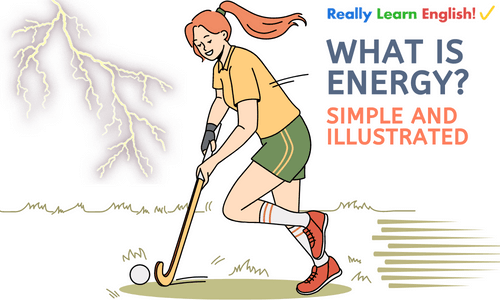
Lesson Table of Contents
- Everyday Definition of "Energy"
- Example Sentences (Negative)
- Example Sentences (Positive)
- Scientific Definition of "Energy"
- A Dialogue to Practice Using the Word "Energy" in Context (Everyday Meaning)
- A Dialogue to Practice Using the Word "Energy" in Context (Scientific Meaning)
Click Here for Step-by-Step Rules, Stories and Exercises to Practice All English Tenses
The word "energy" has several different definitions, depending on the context in which it is used.
Here are a few common definitions of the word "energy".
1) Everyday Definition of "Energy"
Energy is the ability to do a physical or mental activity. The less energy you have, the more tired or exhausted you are. The more energy you have, the more you feel alert, strong, and alive.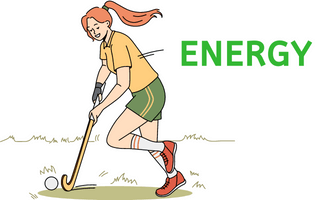
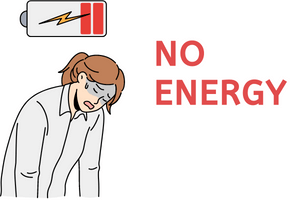
Example Sentences (Negative)
- "I don't have the energy to clean the house today. I'm just too tired."
- "I don't have the energy to go out tonight. I think I'll just stay home and rest."
- "I don't have the energy to study for this exam. It's so late at night that I'm unable to focus."
- "I don't have the energy to deal with this problem right now. Can we talk about it later?"
- "I don't have the energy to play with our dogs today. I need to take a break."
Example Sentences (Positive)
- "I'm full of energy today. I'm ready to tackle any task that comes my way!"
- "I'm feeling really energized today. I have the energy to go for a long hike!"
- "I feel so alive. I have the energy to play with our dogs and run around the park with them!"
- "You seem especially motivated today. Do you have the energy to work on this project and see it through to completion?"
2) Scientific Definition
of "Energy"
Energy is the ability to do work or produce change.
For example:
When you lift a heavy object (or any object), you use energy (apply force to move the object).
Energy can take many forms:
Kinetic energy (the energy of motion): The force of
a moving object.Imagine a bowling ball sitting on the floor. The ball is not moving, so it does not have any kinetic energy.
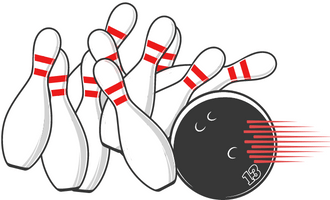
Potential energy (the stored energy of an object): the force an object has because of its position, or the forces acting upon it. The higher an object is, the more potential power it has. The more forces acting on an object, the more potential power it has.
Imagine a book sitting on a shelf. The book has potential energy because it is being held up by the shelf, and if the book were to fall, it would hit the floor with force. The higher the book is on the shelf, the more potential energy it has because it has a greater distance to fall.
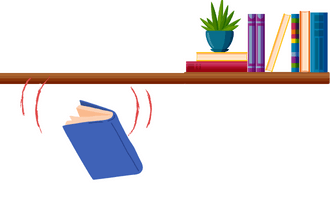
Or, imagine a rubber band stretched between your feet. The rubber band has potential energy because it is being stretched and held in place. If you let go of the rubber band, it will have the power to snap back with force into its original shape.
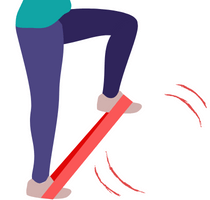
Thermal energy (heat): the force that an object has due to the movement of its particles. The faster the particles in an object move, the more thermal energy the object has (the object is hotter).
Imagine a cup of hot tea. The tea has thermal energy because the particles in the tea are moving around and colliding with each other.

Electrical energy (the energy of electricity): the force of electrons moving through a substance (like copper wire). Electrical energy can be used to do work, such as powering a light bulb or a motor.
For example, when you turn on a light switch, the electrons in the wires are pushed along by a force (electricity) to power the light bulb. The electrical energy produced by the movement of these electrons is used to do work (illuminate the room).
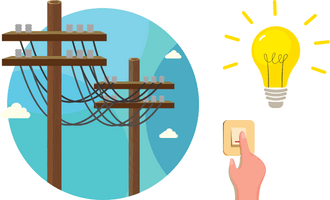
For example, when a match is struck, the chemical energy inside the match is released. This energy creates heat and light (fire), which can be used to do work (such as lighting a candle).

Solar energy (the energy from the sun): the force that comes from our closest star, the Sun. Solar energy is used to do work, such as powering a car or providing light and heat to our homes.
For example, when solar panels are exposed to sunlight, they convert the solar energy into electrical energy. This electricity can then be used to do work, such as powering a light bulb or a motor.
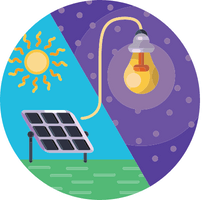
Another example is when our bodies are exposed to sunlight, it produces heat (warms us up).
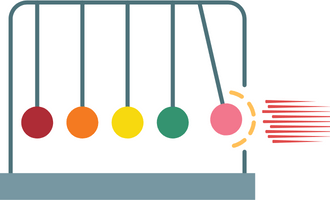
Example Sentences
- "The sun produces a lot of energy, which we can use to generate electricity."
- "I picked up a heavy box, and it took a lot of energy to lift it."
- "The car's engine converts gasoline into energy, which powers the car's movement."
- "The battery stores energy, which can be used to power a flashlight."
- "Plants use sunlight to convert energy from the sun into chemical energy."
- "The ball transferred some of its kinetic energy to the pins, causing them to move and fall."
- "The book had potential energy because it was being held up by the shelf."
- "The tea had thermal energy because the particles in the tea were moving around and colliding with each other."
- "The electrical energy produced by the movement of electrons was used to illuminate the room."
- "When a match is struck, the chemical energy inside the match is released."
- "Solar panels convert solar energy into electrical energy, which can then be used to do work."
A
Dialogue to Practice Using the Word "Energy" in Context
(Everyday Meaning)
Alex: Hey, how was your workout this morning, Samantha?Samantha: It was great! I had so much energy after my breakfast.
Alex: That's awesome! I wish I had that much energy in the morning.
Samantha: Yeah, it really helps to start the day off right. Do you have any plans for the rest of the day?
Alex: Not really. I was thinking of taking it easy and just relaxing at home.
Samantha: Well, if you're feeling low on energy, that's a good idea. It's important to listen to your body and give it the rest it needs.
Alex: Yeah, you're right. I'll just take a nap to recharge my energy. Otherwise, I won't have enough mental energy for that task later on.
Samantha: Good idea. You'll be feeling refreshed and ready to tackle anything. Have a good rest!
A Dialogue to Practice Using the Word "Energy" in Context (Scientific Meaning)
Scientist 1: Hey, I heard you have been working on improving the energy efficiency of car engines. How's it going?Scientist 2: It's going well! We've been testing different designs and materials to see which ones can optimize the energy conversion in the engine.
Scientist 1: That's interesting. What kind of energy conversion are you looking at?
Scientist 2: We're mainly focused on improving the efficiency of the internal combustion process. That's where the energy from the fuel is converted into mechanical energy to power the car.
Scientist 1: I see. And have you made any progress?
Scientist 2: Yeah, we've made some good strides. We've been able to increase the energy conversion efficiency by about 5% by using a new type of fuel injection system.
Scientist 1: That's great! Any increase in energy efficiency is always a positive step.
Scientist 2: Definitely. We're always looking for ways to reduce the amount of energy wasted in the process and make the most of the resources we have.
Scientist 1: So, what's next on your list of improvements?
Scientist 2: We're planning on experimenting with different types of fuels to see if we can find one that has a higher energy density and burns more efficiently.
Scientist 1: That's a good idea. Higher energy density means more energy can be stored in a smaller space, right?
Scientist 2: Exactly. And a more efficient burn means less energy is lost as heat and more of it is converted into usable mechanical energy.
Scientist 1: It sounds like you're making some significant progress in optimizing the energy conversion in car engines.
Scientist 2: Yeah, we're definitely making progress. But there's always more to be done. There are always new technologies and materials to explore, and there's always room for improvement.
Scientist 1: I agree. It's important to keep pushing the boundaries and finding new ways to increase energy efficiency.
Get Updates, Special Offers, and English Resources
Download your FREE GIFT (the first two chapters of
English Short Stories Book and Workbook)
as soon as you join!

By submitting your email, you consent to receiving updates and newsletters from us and to the sharing of your personal data with third parties for the purposes of sending you communications. We will not spam you. You can unsubscribe at any time. For more information, please see our privacy policy.





